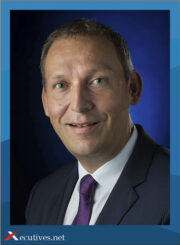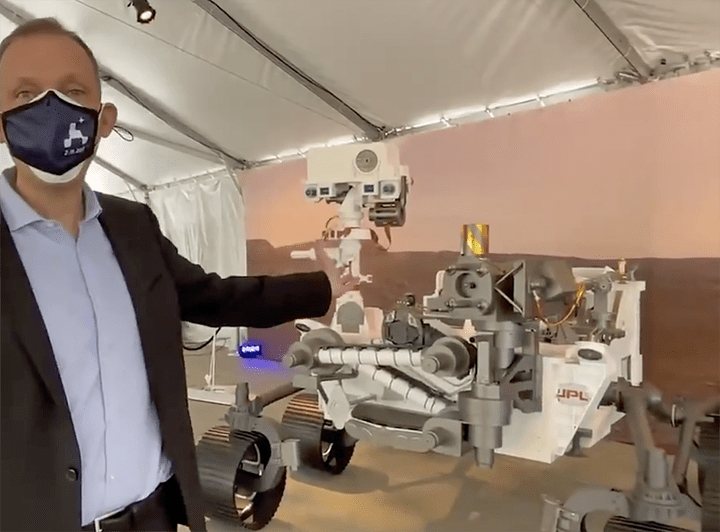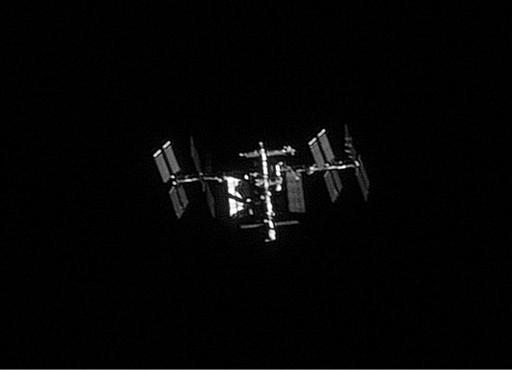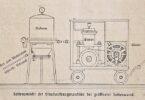
Prof. Dr. Thomas H. Zurbuchen has been Associate Administrator for the Science Mission Directorate at the National Aeronautics and Space Administration (NASA) since 2016, making him one of the most influential scientists in the world. Zurbuchen, who holds a doctorate in astrophysics, hails from Heiligenschwendi, above Lake Thun, also known for its tuberculosis sanatorium, which was established there in 1895. Dr. Zurbuchen still has ties to Switzerland, but has lived and worked in the United States since completing his studies in Bern. Zurbuchen’s origins, as well as his military career, have had a great impact on him. Even as a child, Thomas H. Zurbuchen used star charts to observe the clear skies with their celestial bodies; he was fascinated by nature, which has much to offer in the Bernese Oberland. His experiences in Switzerland, especially in dealing with engineers and their work, equipped him to lead large technical innovation projects in the USA after a very short time, which eventually led him to NASA. In 2018, Thomas Zurbuchen was awarded the Greinacher Prize (named after the Bernese physicist Heinrich Greinacher) by the University of Bern for his achievements in the field of space research.
In an interview with Xecutives.net, Thomas H. Zurbuchen talks about his roots in Switzerland. He states that the Swiss school system, with the possibility of undertaking a vocational apprenticeship, is a special institution that is very important for Switzerland. He also explains why Switzerland is very well represented in international projects and committees. He points out that this considerable achievement for a small country can also be explained by the fact that the Swiss have always managed to communicate and listen to others. He argues that many researchers often do not know how to express their work in an understandable way; he therefore advocates for a good triad in terms of teaching, research and innovation. In the interview, Thomas H. Zurbuchen assuredly shows how he leads, and he addresses technical issues surrounding the exploration of our universe, including basic research at CERN in Geneva.
(Lesen Sie das Interview in Deutsch)
Xecutives.net: Mr. Zurbuchen, you come from Switzerland, from Heiligenschwendi, an old village with Celtic and Alemannic roots above Lake Thun, where a tuberculosis sanatorium was opened in 1895. Schwendi and Heiligenschwendi became famous far beyond the borders of Switzerland at that time because of this sanatorium, which also had a great influence on Swiss tourism. What emotional ties still connect you today with this place?
Thomas H. Zurbuchen: I grew up in Heiligenschwendi, and my history is very connected to this village and the foothills of the Alps in Switzerland. I grew up very close to nature and am still connected to Switzerland. I still maintain many friendships in Switzerland. The village life I experienced as a youth has also influenced the way I interact with people.
Xecutives.net: Did you look at the stars in Heiligenschwendi as a child? Did you already enjoy space and the clear starry sky in Heiligenschwendi, a place that is still considered to have excellent air quality today?

Thomas H. Zurbuchen: Yes, I have often looked at this starry sky. In this area of the Pre Alps or foothills it is very easy to observe nature. The natural surrounding is very diverse and the geology is very interesting in the Pre Alps. It was always very dark in the evenings and at night, because there are no big cities far away, so the view of the stars was of course wonderful. This nature and the starry sky have influenced me very much, already as a child. I already read star charts at that time and also dealt with the stars in this way.
Xecutives.net: Since 2016, you have been serving as Associate Administrator for the Science Mission Directorate at the National Aeronautics and Space Administration (NASA). As a Swiss national, how did you come to be appointed to this prestigious and important position at the NASA?
Thomas H. Zurbuchen: I grew up in a remote place, but the school system in Switzerland was very good and it is even better today. I went through the normal schools and later went to the Gymnasium in Thun, from there to the University of Bern. The decision to go to Bern was purely geographical. It was the closest university. There I got all the support I needed. I had very good professors, and quickly also a lot of good apparatus and instrument builders around me. These were many specialists who had done an apprenticeship in Switzerland and were very practical. Many of these engineers had not studied at university, but had done excellent engineering work, from which I was able to profit a lot as a student. At the same time, I pursued a military career and became a first lieutenant in the Swiss Army. In the military, I learned very early to lead people, people who came from different social backgrounds, some from big cities, others from small villages, and all of them had different professions and different views, which made leading very challenging. At the age of 21 I already had 10 people I was responsible for, at 22 there were already 20 and later 150 people I was allowed to lead.
The challenge was to work with people I didn’t choose myself and who weren’t like me. This collaboration was a gift that was not so obvious to me at the time. Later, these experiences helped me a lot on my professional path in the USA. The management tasks I was soon entrusted with in the U.S. after graduating were easier for me than for other experts. I knew how to behave when I was under pressure, but I also knew how other people behaved when they were under stress. I also knew how to motivate people to perform well.
Xecutives.net: After your studies, you moved to the U.S., where you still live today, and you have also obtained American citizenship. How did the decision to go to the USA come about in the first place?
Thomas H. Zurbuchen: I initially went to the U.S. with the support of the Swiss National Science Foundation, with the intention of spending a year there and learning English. Already in the second week in the USA, I was able to convince my boss at the time to let me work in the USA for two years. I had talked to many people beforehand about such a stay in the USA. Many had had very bad experiences with such stays, others had had very good experiences. Those who had had bad experiences were often people who found it difficult to leave Switzerland. Or they worked in places where they did not get any support. So very quickly it was clear at that time that I would also stay in the U.S. for a second year. I did research in the USA together with my professors and developed and built new space instruments for NASA. Of course, the experiences from the university in Switzerland with the many engineers were very advantageous. I was able to apply all my knowledge very quickly and early on I led up to 40 experts in projects. During my time as a professor, I also trained around 20 doctoral students and also supported these doctoral students in their careers in the private sector but also at universities and other research institutions.
The mix between research and the engineering activities at the University of Michigan can be compared to the research activities at an ETH in Zurich. Scientific research and engineering research and practice go hand in hand there. I also started teaching engineering early on. That was very exciting for me, because on the one hand I knew the scientific language, but on the other hand I could quickly switch to the language of engineers. Both worlds were very familiar to me. When I gave lectures at the university, I reduced the theoretical topics that are taught in lectures by two-thirds in terms of time and spent these two-thirds of the time on practical courses, from which the students could benefit a lot. I managed many projects for the private sector, and I also worked for Google, for example. Ultimately, it was this innovation work, coupled with teaching and research, that led me to NASA.
Xecutives.net: What makes Switzerland different from the U.S. in terms of research and university operations? I ask this because Prof. Dr. Heinz Riesenhuber, German Minister of Scientific Research under Helmut Kohl, pointed out in conversations that in Germany, according to a survey, more than 65% of students would like to pursue a career as a civil servant, probably the result of an exaggerated sense of lifetime security or a lack of job opportunities, whereas students in the U.S. are clearly drawn to the private sector and would like to start companies. In other words, they are much more willing to take risks. Do Americans really tick so differently than us Europeans? What can we learn from the individualist shape of their dreams and aspirations?
Thomas H. Zurbuchen: Of course, you always have to distinguish which students exactly you are talking about. There are enormously motivated and good researchers here as well as there. But it is certainly the case that things are different in the USA than in Europe. You have to distinguish between PhD students who are doing great research and have the goal of becoming a professor and researchers who are more drawn to private industry. Many doctoral students want to become professors or so-called „civil servants“ in research institutes. Most, however, who graduate with a master’s or bachelor’s degree are drawn to the private sector in the U.S., which has a lot to offer and cater to these researchers. We have a lot of job openings in the U.S. that offer great opportunities for these specialists. We probably have a million jobs in the next few years that can’t be filled because there are too few specialists on the market or being trained. Our problem in the USA is therefore the opposite of what Prof. Heinz Riesenhuber told you. It is not the case here that the young specialists have to stand in line with their diplomas in order to get a job, possibly in a government agency. Young people have a wide range of options here, especially in private industry, and most of them are actually drawn to the private sector.
I sometimes worry about the education of graduate students. I worry that many of these students are almost overeducated, even here in the U.S., and therefore less innovative. They often lack the practical element in their education and the exposure to the world. I would describe this like gold miners digging their gold deep down in their trenches, away from society. As a result, these researchers don’t really learn to talk to other people and engage with other people. They sometimes use researcher language that others don’t understand, which is obviously not conducive to complex projects. This can also lead to a breach of trust between science and the world, that is, society, then when it no longer understands the language of science. I think that is a significant problem in our time, and it is important to counteract this. As a scientist, you have to have a clear language that everyone understands. In the military service and in my upbringing in the country, I learned that it is not important whether I have a professorial title and the other one does not. What’s important is that you can drive great projects together. It takes all people, those with titles and those without, people with many career backgrounds. In short, it’s about respect and understanding for others.
Xecutives.net: Many scientists actually use a difficult language, which does not make it easy for laymen to understand them. But didn’t Einstein already say that also a scientist must be able to communicate very complex facts simply, otherwise he just didn’t understand these facts?!
Thomas H. Zurbuchen: That’s a great and important point. Science has always been interested in explaining complicated things simply. But if you listen to certain scientists, you often get the impression that they explain simple things in too complicated a way. But that can’t be the goal of science, and that’s why Einstein’s statement is, of course, completely correct. This corresponds exactly to my experience. If someone explains things to me in relation to an important mission that I don’t understand, then I have to ask critical questions. I then have to ask why they can’t explain it to me in a way that I and other experts can understand. So I have to reject or cancel presentations now and then, when someone is not doing their job properly by not being able to get things to the point. This has nothing to do with these experts not being clever or stupid. It is our job, also within NASA, to be able to explain difficult facts and findings to lay people.
Xecutives.net: NASA has been around since 1958, but human beings have always been fascinated by the universe; by space itself. The Babylonians made great contributions to the exploration of our solar system, as cuneiform documents that have been found beautifully show. They also did preparatory work for Hipparchus and Ptolemy as well as for the Egyptians, Indians and Chinese. Today, completely different techniques are available to do research. What are you working on today in your Research & Development programs, and what insights would you like to gain that are important for NASA and its programs?
Thomas H. Zurbuchen: We’re looking to advance knowledge of ourselves, our planet and our universe in many ways. From understanding the processes and changes of our planet and sharing that knowledge with decisionmakers and scientists worldwide, to exploring our solar system and looking beyond it, we are transforming our body of knowledge constantly.
We’re working on many things to advance science, technology, aeronautics and human exploration. Our directorates are collaborating as never before. In the near future, you can see this with our Ingenuity Mars helicopter, which uses some of the expertise of our aeronautics program, our push to develop new technologies that will advance science missions, and the overall use this could have for human missions to Mars as well.
The Perseverance rover that carried Ingenuity to Mars is our most sophisticated rover ever, and it will search for signs of ancient life and begin the process of Mars Sample Return, as we select and cache samples on the surface. This exciting campaign – the first ever round trip to another planet – is one of the most ambitious things humanity has ever attempted.
The James Webb Space Telescope, set to launch later this year, is the largest, most ambitious observatory we’ve ever launched, and new technologies had to be developed for it to operate. Its so large it has to be folded up to launch, and hundreds of components have to unfurl in space for it to work properly. When it reaches its observation point a million miles from Earth, it will look at the light from our first galaxies, a span of time almost impossible to comprehend, and it will also see the atmospheres of worlds in other solar systems.
So research and development to drive amazing new missions is alive and well at NASA.

Xecutives.net: Erich von Däniken, who passes on his very best wishes to you, has reached an audience of millions with his books and he is known to millions of his readers as well as viewers of Ancient Aliens series in the USA. Von Däniken lives not far away from Heiligenschwendi. I would also like to mention Carl Sagan, who has made a name not only with science fiction but also with his astrophysical studies. What is it that, in your opinion, drives humankind into space, so that we also wish to „conquer“ Mars and dream of extraterrestrial life? What also drives NASA scientists and engineers to gaze into the cosmos?
Thomas H. Zurbuchen: There’s no one who doesn’t feel awe when staring into the night sky. Space makes us contemplate the big questions, and our work helps us push the frontier of knowledge, that drives new questions and new inquiry. It’s a never ending process, and we hope that by inspiring the young leaders of tomorrow to follow us, they’ll make their own giant leaps into the cosmos.
Xecutives.net: There are mathematical formulas and algorithms, such as the famous Drake’s equation, that try to prove the probability of life on other planets. Many believe that there is such extraterrestrial life, only, in my opinion, the question arises whether this life on other planets is taking place now, or is already past. Then the staggering distance to these „alternate life forms“ or „aliens species“ in light years is a big problem. Even if we knew where extraterrestials actually could be located in our galaxy, we would not be able to contact them. How does NASA deal with this topic? Is it more a niche topic? Or is it also a big marketing tool to gain the interest of politics and the population?
Thomas H. Zurbuchen: The search for life elsewhere is part of many NASA missions. Astrobiology is the field that emcompasses that, as well as the study of what it takes for life to arise. We’ve learned that Mars could once have been habitable, for instance, and bringing samples back from it might give us definitive proof that microbial life could have existed there. There are other targets in our solar system such as Enceladus and Titan, for instance, where we’re also looking for the building blocks of life or life itself. And as we look into other solar systems with Webb and other observatories, we’re learning more about the planets there and whether or not they are in the ‘habitable zone’ around their stars as Earth is, and whether their atmospheres have the signatures that might indicate life.

Xecutives.net: There are some Swiss people who have done great things in mathematics, astronomy and astrophysics. I am thinking of Daniel Bernoulli and Leonhard Euler, who laid important mathematical foundations, or Jost Bürgi and Albert Einstein, but also Fritz Zwicky, who dealt with „dark matter“ at an early stage. Other people are Claude Nicollier, who became an astronaut, and the Swiss astronomers Michel Mayor and Didier Queloz, who recently received the Nobel Prize in Physics for the discovery of the first exoplanet around a Sun-like star. What role does Switzerland play in space research today? Where do you see potential for Switzerland when it comes to space exploration and development, also regarding Universities and universities of applied science?
Thomas H. Zurbuchen: What I am about to say, however, is based on my few professional experiences in Switzerland. I went to the U.S. soon after graduation and stayed in the U.S.. However, if a Federal Councilor or a person from the State Secretariat were to ask me what Switzerland can do to become more important, to be more involved, I would first give them a big compliment. Switzerland is already represented in many important bodies, even disproportionately. This certainly has to do with the fact that Switzerland, as a united nation, has learned to deal with each other and to find common solutions. This is not self-evident in a country where 4 official languages are spoken and people of different cultures live. We have talked about the importance of understanding others. The Swiss can understand others. They also want to understand others. We see this very nicely when you look at the Swiss school system. Children learn other national languages at school in Switzerland. People should be able to communicate with each other. The education system in Switzerland is enormously good for this at all levels. Switzerland has the apprenticeship system. Anyone can learn a trade, gain practical experience and later develop their skills. This is unique in the world. Many countries do not know these vocational apprenticeships and unfortunately often struggle with youth unemployment.
And further, and this may be the result of the other two points mentioned before, is a great respect for craftsmanship. Switzerland has always known how to provide very high quality services, including craft services. The Swiss are used to working hard and clean and they want to achieve their goals. This is shown by the many companies in Switzerland that build apparatus, machines and plants at the highest level, even for NASA. These companies also benefit from the stable conditions in Switzerland. These are important aspects that have brought Switzerland, although a very small country, far forward.
It is worth taking a look at the hundred best brands in the world. Several companies from Switzerland appear there, for good reason. So I am very confident as far as Switzerland is concerned.
Xecutives.net: PD Dr. Hans Peter Beck from CERN has made very interesting statements regarding the Higgs boson particle. In 2012, the existence of this elementary particle was confirmed at the CERN research center. Where do these and many other findings from CERN’s basic research play a role in NASA?
Thomas H. Zurbuchen: The fact is that nature is interrelated. Every particle of nature is related to the other particles. One may say that CERN is the best „microscope“ for the study of elementary particles. Just in the last two weeks, new observational results have been reported from CERN. These new findings around muons, electrons and leptons of course have implications for the study of our universe. It is a matter of finding out which particles exist and how they behave towards other particles. These findings may help us determine, for example, how the universe expands at the very beginning of time and how it cools later. For this research, also within NASA, basic research, including research from CERN, is very important. The universe with its width and the particles investigated by the CERN are most closely connected with each other. If now also these new realizations of the CERN can be confirmed, then this has consequences also for the research of the universe.

(picture source reference: olrat – stock.adobe.com)
Xecutives.net: Luca Parmitano and Andrew Morgan of NASA carried out several spacewalks to maintain and repair the Alpha Magnetic Spectrometer (AMS-02), which had been assembled at CERN by an international team of scientists. What kind of data does this AMS provide and what regarding particle physics is to be expected in the next 10 years?
Thomas H. Zurbuchen: After nearly 10 years aboard the ISS, the AMS continues to help scientists study cosmic ray particles traveling in the universe. Hundreds of scientists from 16 countries are analyzing the data, hoping to determine what the universe is made of and how it began, looking for clues on the origin of dark matter, invisible matter that can’t be directly detected but can be inferred, and the existence of antimatter, made of elementary particles with the opposite charge of ordinary matter, which scientists have rarely been able to observe.
Xecutives.net: NASA now also works with well-known personalities from the private sector, such as Elon Musk, who builds rockets and launches them into space with his company SpaceX. What drives these people to engage with space in this way? I imagine that these extraordinarily wealthy, powerfully charismatic individuals such as Elon Musk, or Jeff Bezos of Blue Origin, are very passionate. Do you feel that these billionaires visionaries do not treat these long term solar system startup projects just like any other significant enterprises that play also a lucrative role in their business lives and portfolios?
Thomas H. Zurbuchen: NASA has helped to seed the commercial sector’s work in space, and we look forward to working with our commercial partners in the expanding enterprise of exploration from low Earth orbit to the Moon and Mars. Their innovation and hard work has helped expand what we are able to do.
Xecutives.net: A big challenge for space scientists is to be able to keep the ISS space station on course. It has to be constantly readjusted to eliminate the risk of it from veering out of orbit and crashing to Earth. This is where Elon Musk with his SpaceX company seems to be making a big contribution by providing rockets for this positioning. What will happen with the ISS in the future? What would be your personal dream regarding the future of the ISS?

(photo courtesy of Marcel Süssli).
Thomas H. Zurbuchen: While the ISS is not in the Science portfolio, our Biological and Physical Sciences Division conducts a lot of research on the station that is contributing to future exploration, from how to grow food in space, to how to protect astronauts from radiation, to how materials perform in the microgravity environment. We look forward to using this platform to advance that research in the coming years.
Xecutives.net: Dear Mr. Zurbuchen, thank you very much for the time you have taken for this interview and I wish you and all NASA employees all the best and further interesting findings in the exploration of our universe!
Find out more about Xecutives.net.
© 2021 by Christian Dueblin. All rights reserved. Other publications are only allowed with the explicit permission of the author.
More interesting interviews on related topics (in English or German):
- Marcel Süssli über Astrofotografie, die Königsdisziplin der Fotografie
- PD Dr. Hans Peter Beck über Teilchenphysik, das Higgs-Boson und darüber, was die Welt im Innersten zusammenhält
- Erich von Däniken about his life, his visions, Indiana Jones, George Lucas, Stanley Kubrick and visitors from space
- Blick in die Vergangenheit, als ein Redakteur 100 Jahre in die Zukunft schaute – und eine Expedition mit einem Fluggerät in Richtung Mars prophezeite
- Prof. Dr. Dr. h.c. mult. Heinz Riesenhuber über seinen Werdegang und den dringend nötigen Kulturwandel in der Wirtschaft
- Prof. Dr. Gottfried Schatz über Forschung und Technologie sowie die Situation der Universitäten in Europa und den USA







